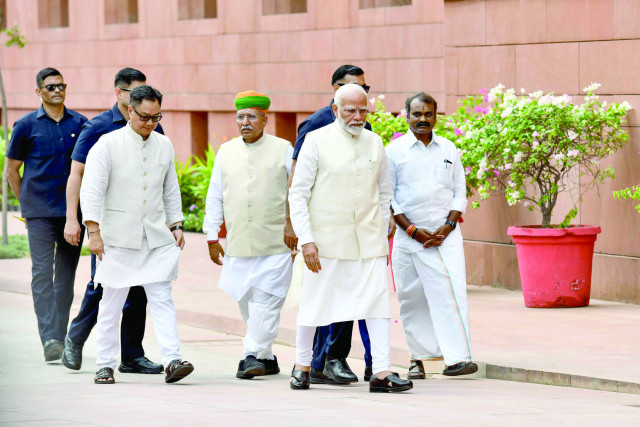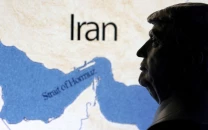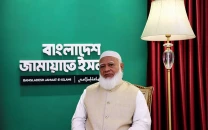Humbled Modi calls for ‘consensus’
Indian PM faces emboldened opposition in Lok Sabha

Indian Prime Minister Narendra Modi appealed to an emboldened opposition for “consensus” on Monday, as parliament opened following an election setback that forced him into a coalition government for the first time in a decade.
Expected in the first session, which will run until July 3, is a preview of Modi's plans for his third term and the likely formal appointment of Rahul Gandhi as leader of the opposition -- a post vacant since 2014.
Modi’s first two terms in office followed landslide wins for his right-wing Bharatiya Janata Party (BJP), allowing his government to drive laws through parliament with only cursory debate.
But now analysts expect the 73-year-old Modi to moderate his Hindu-nationalist agenda to assuage his coalition partners, focusing more on infrastructure, social welfare and economic reforms.
"To run the country, a consensus is of utmost importance", Modi said in a speech shortly before entering parliament, calling on the opposition to play a constructive role.
"People expect their representatives to debate and discuss issues which are important to the country... they don't expect disturbances or hindrances in the parliamentary proceedings," he said. "People want substance, not slogans."
Modi led lawmakers in taking the oath -- as his cheering supporters thumped their desks in support, and opposition members waved the constitution in protest. He said he was "proud to serve" India.
Rahul Gandhi, 54, defied analyst expectations to help his Congress party nearly double its parliamentary numbers, its best result since Modi was swept to power a decade ago.



















COMMENTS
Comments are moderated and generally will be posted if they are on-topic and not abusive.
For more information, please see our Comments FAQ